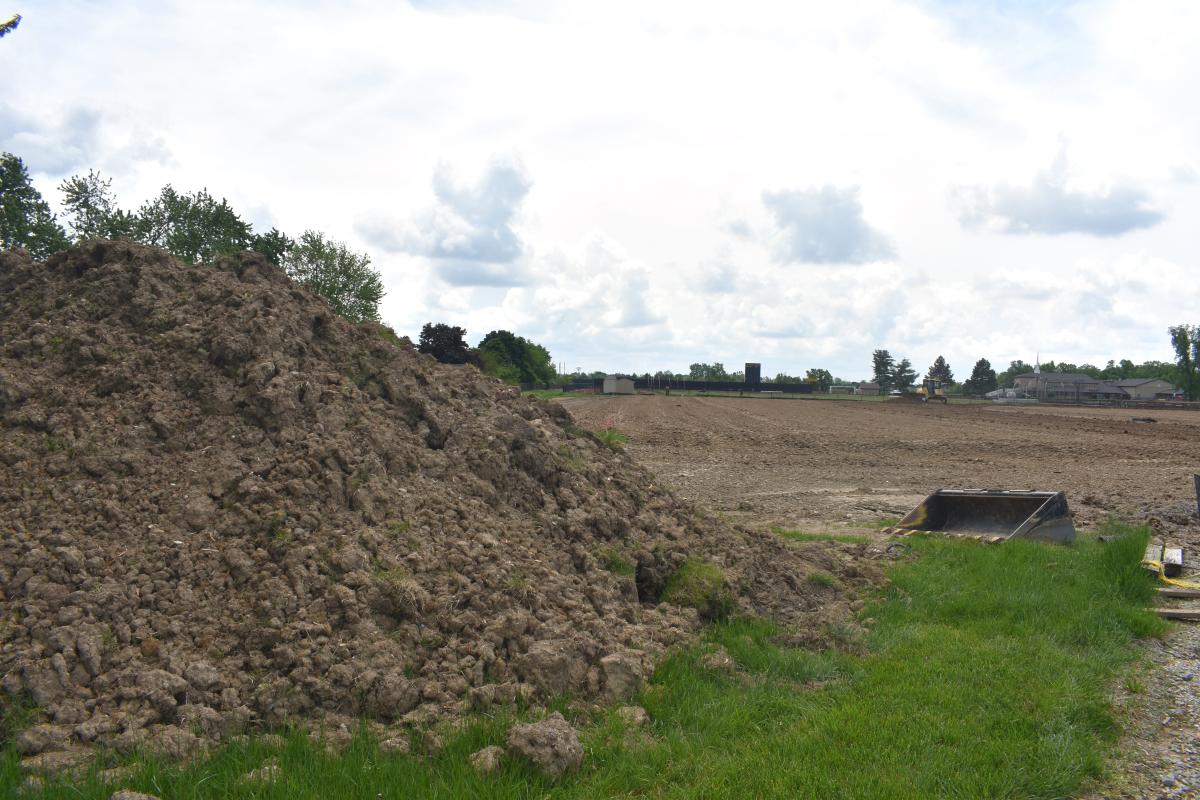Here’s the thing: if you really want to experience the most important football tournament in Africa, you get away from the stadiums when games are being played.
If you really want to understand what hosting this thing means to a country, you go where the people go. You find a maquis on the side of the road, pull up a plastic chair and order some fish from the grill. You drink cold lager and join the debate. Should Serge Aurier really be starting for Ivory Coast? You huddle in front of a television you can barely see because of a crack across the screen in Abobo and you hope you don’t miss anything. You stare at a peeling wall in Yopougon and you hope the projector beaming images from Ebimpe doesn’t pack in.
Abidjan has layers and it’s very important to remember this. Abobo? That’s near the bottom of the social ladder. Yopougon? A bit higher. Cocody, with its private villas, sprawling gardens, and beautiful young people drinking cocktails? That’s right at the top. Marcory is somewhere in between and in some ways, this makes it the most interesting right now because life is changing so fast and it explains where parts of the country are heading.
Zone 4 developed its reputation because it was home to Abidjan’s sex trade. The red light district is there at street level, but if you look up in the sky, you can see apartment blocks where there are penthouses with strobe lighting. One of its residents says it’s now as easy to eat from a Texas Grill or shop for bedding at a strip mall as it is to get a massage. Poverty and wealth exist on the same street and you genuinely don’t know what you are going to get when you turn around the corner.
(Simon Hughes/The Athletic)
There is an emerging middle class in Ivory Coast. Three hours before the country’s defeat to Nigeria in its second group game, entire families dressed in orange football kits were getting ready for the event by eating in Zone 4 at an expensive pizzeria.
Just around the corner was one of the tournament’s official fan parks. Over the road from that space was the wooden shack of maquis, specialising in attieke, which is a couscous made out of ground cassava root, eaten by Ivorians for breakfast, lunch and dinner. Next door to the fan park, meanwhile, was a tapas bar serving mini plates at 10 times the price.

(Simon Hughes/The Athletic)
Months before a ball was kicked, French journalists reported plans by the local organising committee to forbid Ivorians from watching games in bars and restaurants, directing them instead to fan parks like this one. Frankly, if it was true, this was a ridiculous idea. Aside from upsetting a lot of people, how on earth would they stop it when so many of the country’s forces, in their blue camouflage, were supported by police at stadiums and hotels?
There was a subtle but considerable security presence in Zone 4’s fan park — understandable given the terrorist threats that exist on the northern and western borders of this country. Eventually, you get used to armed men with machine guns and batons standing close by, but this fan park was a bit too controlled for my liking, mainly for other reasons, like the neat seating arrangements and subsequent complaints from those wealthier types lounging on outdoor furniture when anyone got in the way of their view of the huge screen.
Here, you could order Champagne and whisky that came in buckets. You could also drink Guinness or indeterminable moonshine from plastic bottles, or smoke water pipes or Hennessy cigars.
Still, the setup was creating employment. Middle class has become a bit of a dirty description elsewhere in the world, but given Ivory Coast has been through two civil wars in the past 17 years, so long as people maintain their values, surely it’s a good thing that living and social standards are improving. The challenge from here will be to ensure the gap, so evident in Zone 4, doesn’t become too vast elsewhere.
The official fan park in Treichville is right next to the Palais de Culture, the CAF media centre in Abidjan.
Alternatively, you can go to the green space in the district’s main square, where nothing is organised but everything works just fine.
Here, you remember the tournament isn’t just about Ivory Coast. This is also about West Africa. Abidjan’s immigrant population is estimated to be at around 30 per cent. In Abidjan, many of them live in Treichville, which is like New Orleans on jet propellant.
Think of low buildings, like those in the French Quarter in the American city. Think old ironwork gates and balcony railings, think antique brickwork and stone-paved sidewalks resting in the shade of porticoes.
Many of the grander residences are now tenements, containing maquis and beer spots in cubby holes, while barbers, butchers and street sellers dominate the pavements.

(Simon Hughes/The Athletic)
It is harder to imagine the energy of the people. On Friday, immediately after Senegal’s victory over Cameroon was confirmed, it felt like 2am in a sweaty nightclub when it was actually just 7pm in the open air.
In fact, a group of girls confirmed they were going home for a nap before starting all over again at midnight. Treichville is that sort of place.
At AFCON, you tend to see the fans in the stadium, swaying this way and that. Coloured in paint, the choreography looks nice, but that’s not the way it really is. If you want to experience real life, go to Treichville, where vast numbers of Senegalese, Malians, Guineans and Burkinabes have come to live.
Here, you begin to realise the way people react to football can be more interesting than the football itself. Among some of the nations, there is an unspoken collective feeling in any match, which leads to a demand. The Ghanaians are like this and so are the Senegalese. If they see an opportunity on the pitch developing, it is normal for large groups to act like wardens directing the traffic.

(Simon Hughes/The Athletic)
They want the ball played here, they want the ball played there. This is reflected by arms pushing and waving in the air. You see it when possession is much deeper on the pitch with Ghana because their players seem incapable of knowing how to build momentum. With Senegal, it’s much higher because they create so many opportunities.
In Treichville’s square, not everyone is clinging to developments on the big screen, which is 20 seconds or so behind play — evidenced by the fact that some of those watching are feeding from their mobile phones. It means a smaller section of the park erupts when Senegal score their second goal hundreds of miles away in Yamoussoukro. When this is then confirmed, hysteria follows.
Cameroon respond with a thumping headed goal and silence falls. Among the thousands of Senegalese, I can see just one person wearing a Cameroon shirt. Brave, perhaps, and she is sensible to remain seated on a plastic chair. Yet this feels safe, like the rest of the tournament has.

The author and a young football fan (Simon Hughes/The Athletic)
After the final whistle, there are dance-offs in the holding pen closest to the screen before a lot of people retreat to the allocodrome, the agglomeration of barbecue stands on the edge of the park. The price for three enormous grilled carps, a spatchcock chicken, attieke and beers for five journalists comes to less than £22 ($28), a bill that would probably cover the cost of just one person a few miles away in Zone 4.
Inside twenty minutes, the orange skies of dusk switch to total darkness. This is when the mosquitoes come out. I think about the complications that might follow if I get bitten, but at this point, it is tempting not to care. Treichville was worth it.
(Top photo: Simon Hughes)

Sarah Wilson is your guide to the latest trends, viral sensations, and internet phenomena. With a finger on the pulse of digital culture, she explores what’s trending across social media and pop culture, keeping readers in the know about the latest online sensations.








